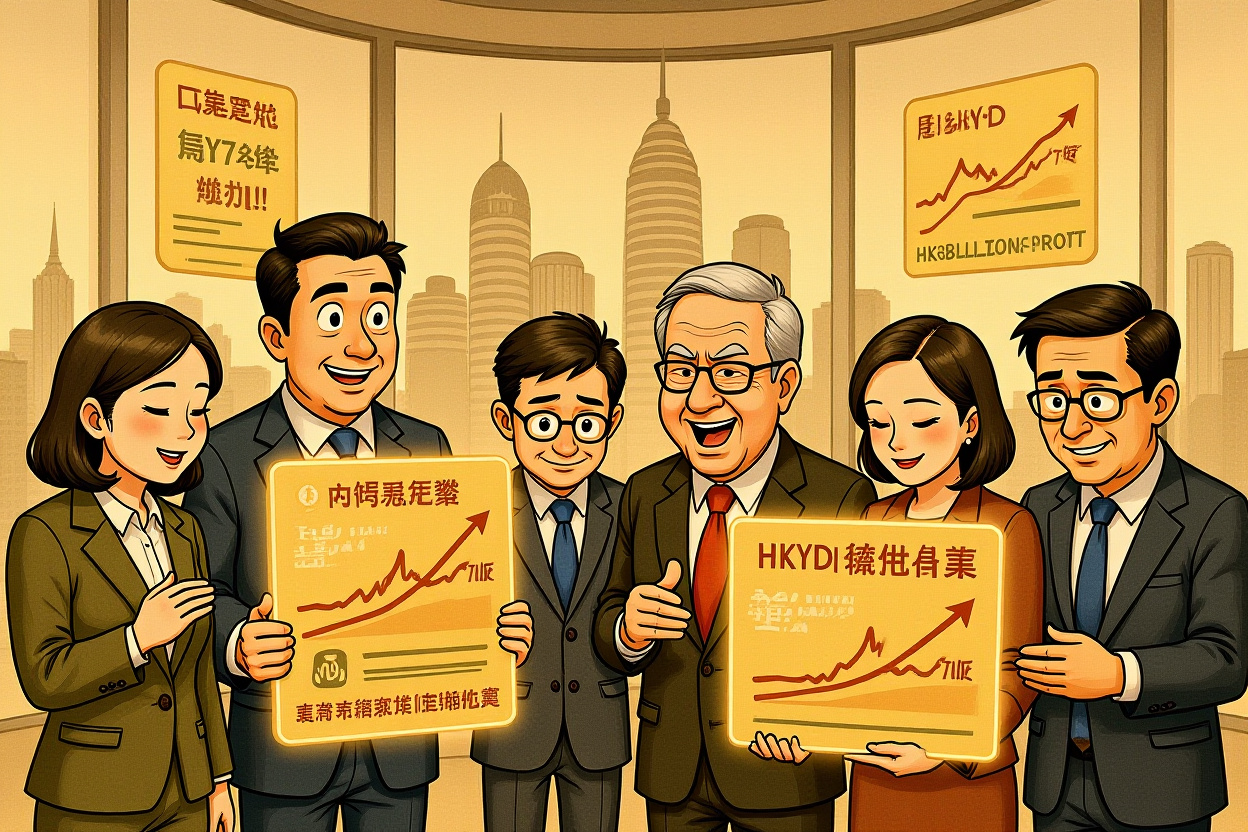Executive Summary
- Warren Buffett’s Berkshire Hathaway has realized cumulative profits of at least HK$8 billion from its 17-year investment in BYD Company Limited (比亚迪股份有限公司).
- The investment demonstrates the long-term value potential of China’s electric vehicle and renewable energy sectors.
- BYD’s transformation from battery manufacturer to global EV leader contributed significantly to Buffett’s returns.
- Recent partial divestments reflect portfolio rebalancing rather than diminished confidence in Chinese markets.
- The case study offers important lessons for international investors considering Chinese equity exposure.
The Legendary Investment That Defined China’s EV Revolution
When Warren Buffett’s Berkshire Hathaway acquired 225 million shares of BYD Company Limited (比亚迪股份有限公司) in September 2008 for approximately HK$1.8 billion, few could have predicted the extraordinary returns that would follow. Seventeen years later, this strategic investment has generated cumulative profits exceeding HK$8 billion, making it one of the most successful international investments in Chinese equities. Warren Buffett’s BYD investment represents not just financial success but a masterclass in identifying transformative companies within emerging markets.
The timing of Warren Buffett’s BYD investment proved particularly prescient, coinciding with China’s push toward renewable energy and electric mobility. BYD, initially a battery manufacturer, transformed itself into the world’s leading electric vehicle producer, benefiting from both technological innovation and supportive government policies. This alignment with national strategic priorities created unprecedented growth opportunities that Berkshire Hathaway capitalized on effectively.
Strategic Rationale Behind the Investment
Identifying Long-term Growth Potential
Berkshire Hathaway’s investment thesis centered on BYD’s unique positioning within the evolving transportation and energy sectors. The company’s vertical integration strategy, spanning battery production, electric vehicles, and energy storage solutions, created sustainable competitive advantages. Charlie Munger, Berkshire’s vice chairman, famously described BYD founder Wang Chuanfu (王传福) as a combination of Thomas Edison and Jack Welch – praise that reflected confidence in both technological innovation and operational excellence.
The investment occurred during a period of market pessimism following the global financial crisis, allowing Berkshire to acquire its stake at attractive valuations. This counter-cyclical investment approach characteristic of Buffett’s methodology proved particularly effective in the Chinese context, where market sentiment often overshoots fundamental values.
Regulatory and Policy Tailwinds
China’s regulatory environment significantly influenced the success of Warren Buffett’s BYD investment. Government initiatives including Made in China 2025 and subsequent electric vehicle subsidies created favorable conditions for domestic champions. BYD’s alignment with national priorities in reducing carbon emissions and developing advanced manufacturing capabilities positioned it for sustained growth.
The Chinese government’s commitment to electric vehicle infrastructure development, including charging networks and battery recycling systems, further supported BYD’s business model. These policy initiatives reduced adoption barriers and accelerated market penetration, directly benefiting Berkshire Hathaway’s investment thesis.
Financial Performance and Returns Analysis
Quantifying Investment Returns
Berkshire Hathaway’s initial investment of approximately HK$1.8 billion has generated returns multiples of the original capital. Through strategic divestments during periods of peak valuation, Berkshire has realized substantial profits while maintaining significant exposure to BYD’s continued growth. The HK$8 billion profit figure represents one of the most successful international investments in Chinese equities over the past two decades.
The investment’s performance can be segmented into distinct phases: initial value recognition (2008-2014), accelerated growth (2015-2020), and maturity phase (2021-present). Each phase corresponded with different aspects of BYD’s evolution from domestic manufacturer to global competitor in the electric vehicle space.
Comparative Market Performance
Warren Buffett’s BYD investment significantly outperformed both broader Chinese equity indices and global automotive sector benchmarks. While the Hang Seng Index delivered modest returns over the same period, BYD shares generated annualized returns exceeding 20%, demonstrating the value of selective stock picking in emerging markets.
The investment’s performance relative to other automotive investments in Berkshire’s portfolio, particularly its stake in traditional automakers, highlights the transformative potential of electric vehicle technology and China’s manufacturing capabilities.
Market Implications and Investor Sentiment
Impact on International Investment Flows
The success of Warren Buffett’s BYD investment has influenced how international investors perceive Chinese equities, particularly in the technology and green energy sectors. The demonstrated potential for substantial returns has attracted increased foreign capital to companies aligned with China’s strategic development goals.
Institutional investors have increasingly sought exposure to Chinese companies demonstrating technological innovation and global competitiveness. BYD’s success story, amplified by Berkshire’s endorsement, has helped reshape perceptions about investment opportunities beyond China’s internet giants.
Sector-specific Valuation Effects
The visibility of Warren Buffett’s BYD investment has affected valuation methodologies across China’s electric vehicle and renewable energy sectors. Investors have become more willing to apply growth-adjusted valuation metrics to companies demonstrating similar characteristics: technological leadership, vertical integration, and alignment with national policy objectives.
This valuation reassessment has facilitated capital raising for comparable companies, accelerating sector development and innovation. The demonstrated success of long-term oriented investors in Chinese markets has encouraged more patient capital allocation strategies.
Future Outlook and Strategic Considerations
BYD’s Competitive Positioning
BYD maintains strong competitive advantages in battery technology, manufacturing scale, and vertical integration. The company’s Blade Battery technology and expanding global production footprint position it favorably within the rapidly evolving electric vehicle landscape. International expansion strategies, particularly in European and Southeast Asian markets, offer additional growth avenues beyond domestic Chinese demand.
The company’s diversification into energy storage, semiconductor manufacturing, and rail transportation provides multiple growth vectors that could drive future valuation increases. These adjacent businesses leverage core competencies while reducing reliance on automotive cyclicality.
Investment Strategy Implications
The ongoing success of Warren Buffett’s BYD investment offers important lessons for international investors considering Chinese equity exposure. The importance of understanding regulatory frameworks, identifying companies aligned with national strategic priorities, and maintaining long-term perspectives emerges as critical success factors.
Investors should consider similar methodologies when evaluating Chinese companies: focus on sustainable competitive advantages, management quality, and alignment with broader economic transformation trends. The demonstrated potential for substantial returns justifies thorough due diligence and strategic patience.
Key Takeaways and Forward Guidance
Warren Buffett’s BYD investment stands as a landmark case study in successful international investment in Chinese equities. The HK$8 billion profit realization demonstrates the substantial returns available to investors who identify transformative companies within evolving sectors. This success story underscores the importance of fundamental analysis, long-term perspective, and understanding regulatory environments.
For institutional investors and fund managers, the investment offers actionable insights: focus on companies with sustainable competitive advantages, align investments with national strategic priorities, and maintain conviction during market volatility. The continued evolution of China’s electric vehicle and renewable energy sectors suggests additional opportunities for similarly structured investments.
Investors should monitor BYD’s execution of international expansion strategies and technological innovation roadmaps. While Berkshire Hathaway has partially reduced its position, the maintained substantial stake indicates ongoing confidence in BYD’s long-term prospects. The investment journey continues offering valuable lessons for global investors navigating Chinese equity markets.




